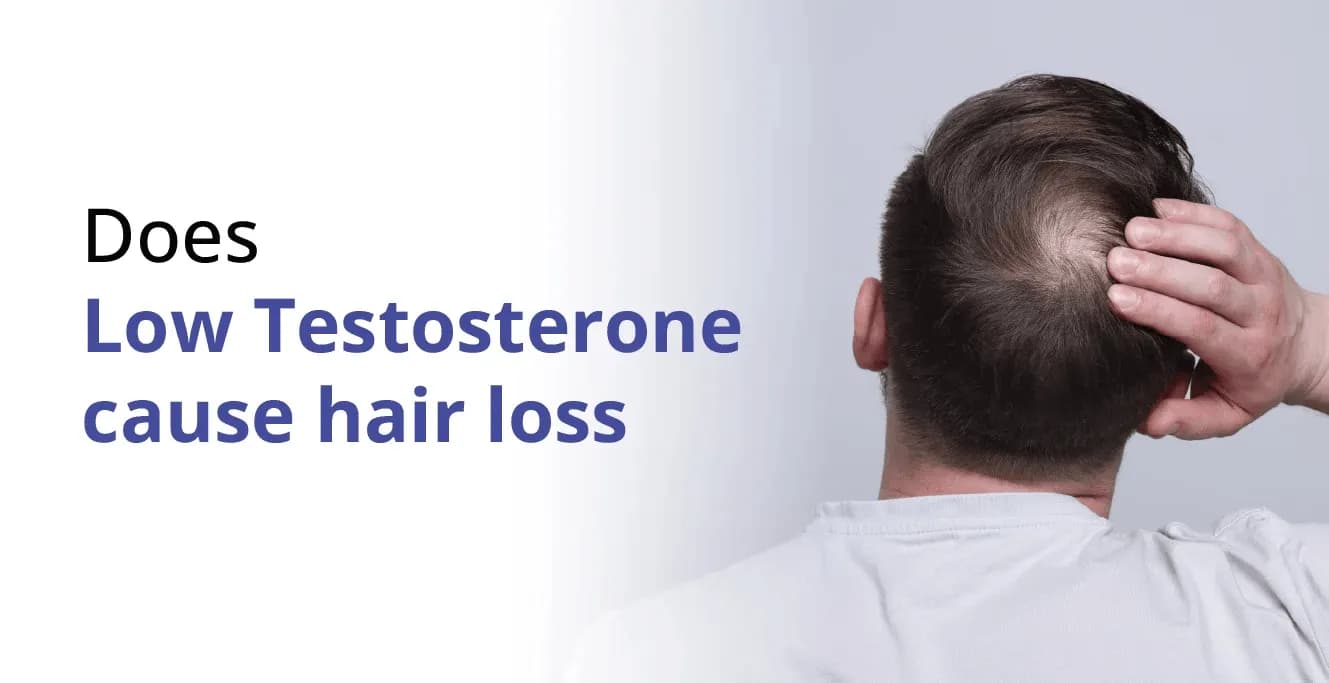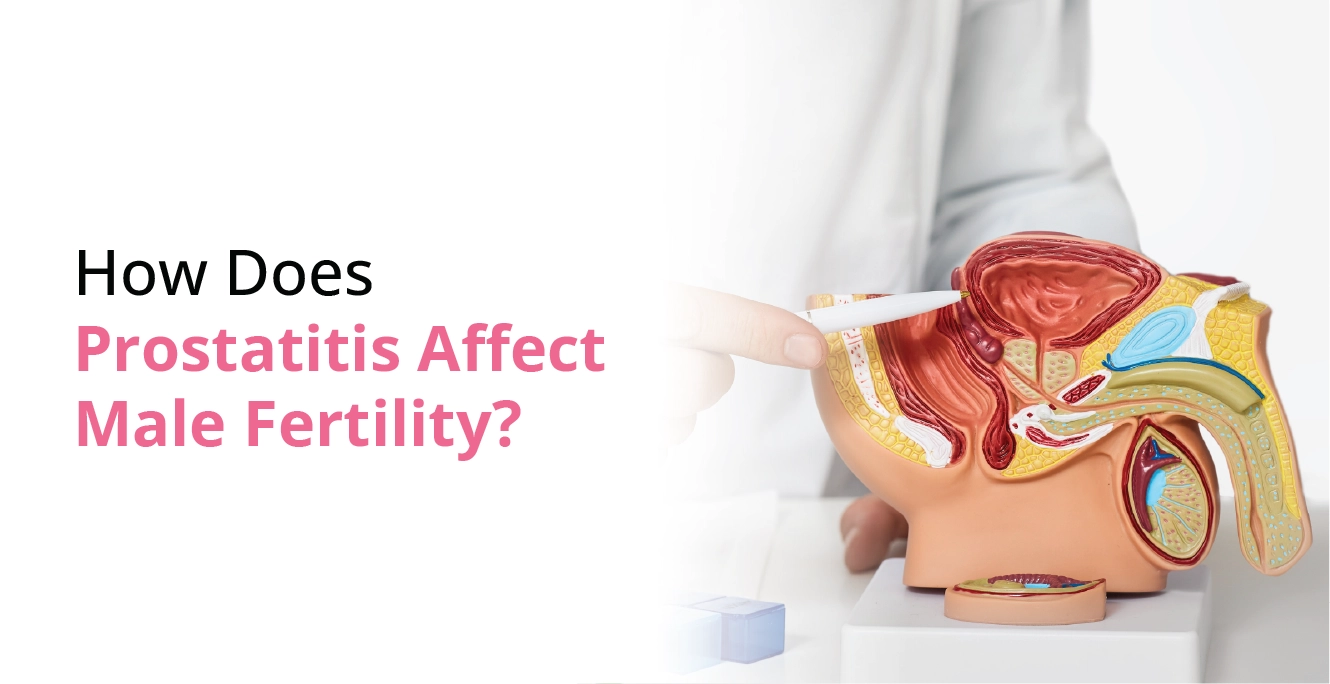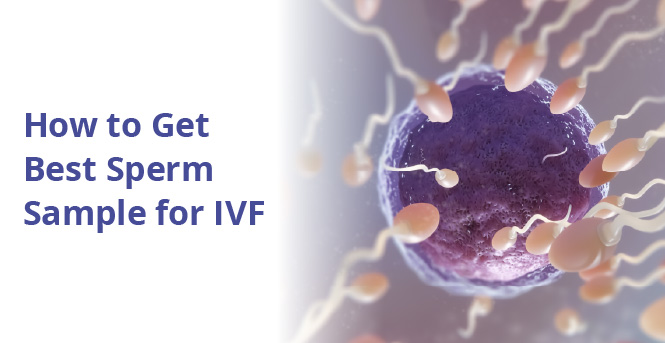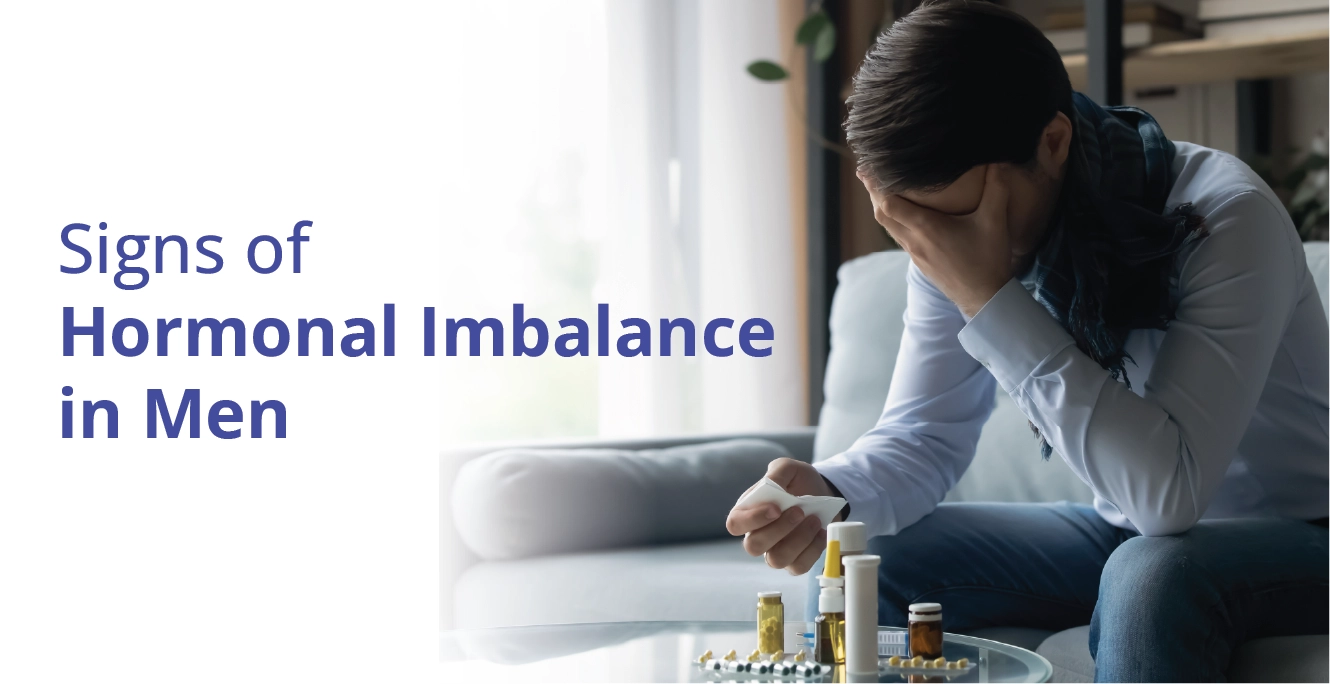
Does Low Testosterone Cause Hair Loss?

Table of Contents
Bharat had always taken pride in his thick hair.
But as he entered his late 30s, he started noticing more strands on his pillow and fewer on his head. His friends teased him about aging, but when fatigue and low energy kicked in, too.
This led him to wonder could something deeper was going on?
At that point, he learnt about the connection between low testosterone and hair loss. Like Bharat, many men wonder if low testosterone can cause hair loss or if it’s just a genetic issue.
With this blog, you will be able to determine any potential connections between these two.
What is Testosterone?
Testosterone is mostly produced by the testicles in men. Though in far smaller quantities, testosterone is also produced by women’s ovaries.
Testosterone production begins to rise dramatically during adolescence and then declines at approximately age 30.
Testosterone is essential for the synthesis of sperm and is most frequently linked to sex drive. It also has an impact on red blood cell formation, bone and muscle mass, and how men store fat in their bodies.
Since testosterone is the primary androgen, it promotes the growth of masculine traits, such as a beard and hair. Males naturally have substantially higher levels of testosterone. A man’s mood might also be influenced by his testosterone levels.
If you are wondering how to know if you have low testosterone, check for symptoms like unusual fatigue, loss of muscle mass, or changes in mood and energy. Any imbalance can be found early and treated appropriately with a straightforward blood test and medical consultation.
Types of Testosterone
It’s crucial to realise that not all testosterone in the body functions in the same manner in order to determine whether low testosterone can result in hair loss. There are three primary forms of testosterone:
Free Testosterone
This is the most active form of testosterone, which makes only about 1-2% of the total testosterone in the body but is responsible for most of its effects. Free testosterone readily enters the bloodstream and interacts directly with bodily tissues, affecting sex desire, mood, muscle growth, and, yes, hair growth.
SHBG- Bound Testosterone
Approximately 40–50% of testosterone forms a strong bond with the protein known as sex hormone-binding globulin (SHBG). It becomes biologically inactive after binding to SHBG, meaning the body cannot utilise it. Hair follicles and general hormonal balance may be impacted by high SHBG levels, which can lower free testosterone levels.
Albumin Bound Testosterone
Approximately 40–50% of testosterone forms a weak bond with albumin, another type of protein. Since the body may still use this kind of testosterone when needed, it is referred to as “bioavailable” testosterone since it is easily detached.
The key factors influencing hair development and other masculine traits are both free and albumin-bound testosterone. Depending on genetic and hormonal factors, a decrease in testosterone levels, particularly the active forms, can impact the hair cycle and lead to thinning or hair loss.
Relationship b/w Low Testosterone & Hairloss
Despite testosterone’s key role, hair loss is mainly caused by a byproduct of testosterone called DHT (dihydrotestosterone), which affects hair follicles and leads to thinning or balding.
But, how?
An enzyme known as 5-alpha-reductase transforms testosterone into DHT. It affects the hair follicles of the scalp and is more potent than testosterone. When too much DHT attaches itself to hair follicle receptors, it causes them to:
- Diminishment (miniaturisation)
- Make weaker, thinner hair
- Eventually, completely stop growing new hair.
| Testosterone Level | What Happens | Hair Impact |
| High / Normal | More testosterone gets converted into DHT | May trigger male pattern baldness if you’re genetically sensitive |
| Low | Less DHT production, but poor scalp and hair nourishment | Signs of low testosterone in a man include hair thinning or slower regrowth due to reduced follicle activity |
This means that excessive or insufficient testosterone can have an indirect impact on your hair. Alongside progressive hair thinning, low testosterone symptoms in men include exhaustion, decreased libido, mood swings, and muscle loss.
Another important factor is genetics. Regardless of your testosterone levels, you are more likely to have hair loss if baldness runs in your family, since your hair follicles are probably more vulnerable to DHT.
In summary, a hormonal imbalance involving testosterone and DHT, combined with genetic factors, may increase the likelihood of hair loss, although low testosterone levels do not always result in baldness. Understanding the relationship between low testosterone and hair loss helps in selecting the most effective course of action for prevention and treatment.
How to Treat Hair Loss?
If you’re dealing with hair loss linked to hormonal imbalance or low testosterone, treatment focuses on improving hormone levels, stimulating growth, and maintaining scalp health. Here are some effective options:
- Hormone Therapy– It is generally known as testosterone replacement therapy (TRT). This therapy helps balance the hormone levels in men who have low testosterone. However, it is essential to do so under medical supervision to prevent excessive DHT formation.
- Medications – Some doctors also recommend medications like minoxidil (Rogaine) or finasteride (Propecia). The formed one is a solution that boosts blood flow to hair follicles and promotes growth. On the other hand, the latter blocks the 5-alpha-reductase enzyme, which reduces the growth of DHT.
- PRP Therapy- It is also known as platelet-rich plasma therapy, where your own platelet-rich plasma is injected into the scalp to stimulate dormant follicles and encourage regrowth.
- Lifestyle Modifications– Eat a protein-rich, balanced diet with vitamins like Biotin, Zinc, and Vitamin D. Manage stress through yoga, meditation, or regular exercise.
- Hair Transplant Surgery– In extreme cases where nothing else is working, hair follicles are transplanted from one area to another for a permanent solution.
- Regular Scalp Care- One must always keep the scalp clean, use mild shampoos, and avoid harsh chemical treatments.
Final Takeaway
Experiencing hair loss can be frustrating. One should not take it lightly since it can also be a sign of low testosterone. However, as we’ve seen, the balance between testosterone, DHT, and genetic sensitivity is what really matters; testosterone alone isn’t necessarily the primary issue. Male pattern baldness is more frequently caused by excessive DHT levels or genetic follicular sensitivity than by low testosterone, which may contribute to thinner, weaker hair.
The good news is that hormonal imbalance-related hair loss is frequently treatable with prompt medical attention, lifestyle modifications, and focused therapies. Restoring equilibrium and enhancing scalp health can have a discernible impact, whether through hormone therapy, drugs, or cutting-edge solutions like PRP.
See an expert at Birla Fertility & IVF to determine the underlying cause of any early signs of thinning hair. By treating the underlying hormonal problem early on, you can not only retain your hair but also enhance your general health and self-esteem.
Our Fertility Specialists
Related Blogs
To know more
Birla Fertility & IVF aims at transforming the future of fertility globally, through outstanding clinical outcomes, research, innovation and compassionate care.
Had an IVF Failure?
Talk to our fertility experts

 Our Centers
Our Centers

















